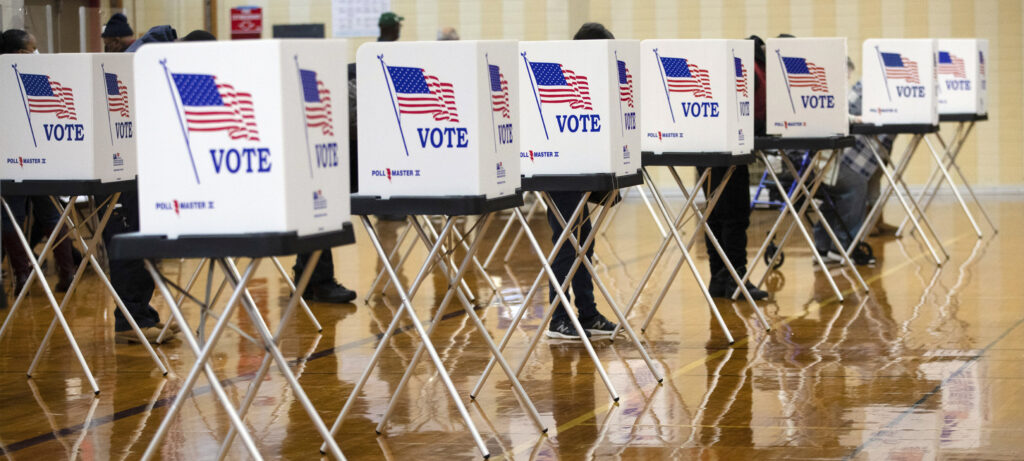Work on debunking 2020 election fraud claims in Antrim County incident recognized with USENIX Best Paper

Prof. J. Alex Halderman has been recognized with a Best Paper award at the 2022 USENIX Security Symposium for his research on debunking claims of voter fraud in the study, “The Antrim County 2020 Election Incident: An Independent Forensic Investigation.“
Halderman’s paper presents an independent investigation of what led Antrim County to produce inaccurate results on the night of the 2020 general election–an incident that gained national attention and inspires election conspiracy theories to this day. Halderman was commissioned by Michigan’s Secretary of State and Attorney General to examine the county’s Dominion voting system and reconstruct the events that led to the erroneous results. He uncovered a chain of human errors, procedural gaps, and software deficiencies, but also debunked speculation that fraud or a security breach was to blame..
Halderman was able to explain what caused the initial major errors and show that they have been fully corrected, but he also discovered additional, smaller errors affecting down-ballot contests that have not been corrected, despite the spotlight on Antrim’s results. The research concludes that, while Antrim County had missed opportunities to prevent or detect the problems, there was no credible evidence that deliberate tampering had occurred.
Halderman also identified potential causes of the breakdown in layers of protection, citing that the township failed to notice poll tape errors pre-election and that county staff erased memory cards and failed to investigate errors and initial results before posting them.
“The events in Antrim serve to remind us that elections are complex human processes that depend on the careful operation of technology and the faithful execution of procedures by people who, like everyone, occasionally make mistakes. That so many mistakes happened in Antrim speaks in part to the extreme pressures that election workers faced in 2020, amidst a pandemic and a bitterly contested presidential race,” said Halderman, in the paper.
Halderman’s research suggests implementing strategies to improve the administration of future elections throughout the country, including strengthening procedural failsafes, improving usability of election technology for election workers, safeguarding election management systems, facilitating post-election forensics. “Incidents involving election technology will inevitably occur again”, he said, “but I hope this work can serve as a model for how to rigorously investigate them, so that we can learn from what went wrong and help uphold the public’s trust.”.
Prof. Halderman’s research focuses on computer security and privacy, with an emphasis on problems that broadly impact society and public policy. He has published extensively on the topic of election security and is often quoted in the media. At this year’s USENIX Security, he also received a second best paper award and the Internet Defense Prize, for work led by Prof. Roya Ensafi. Additionally, he received the Test of Time award for a 2012 paper, written with CSE Ph.D. alumni Eric Wustrow and Zakir Durumeric and their collaborator Nadia Heninger, “Mining Your Ps and Qs: Detection of Widespread Weak Keys in Network Devices.”

 MENU
MENU 
